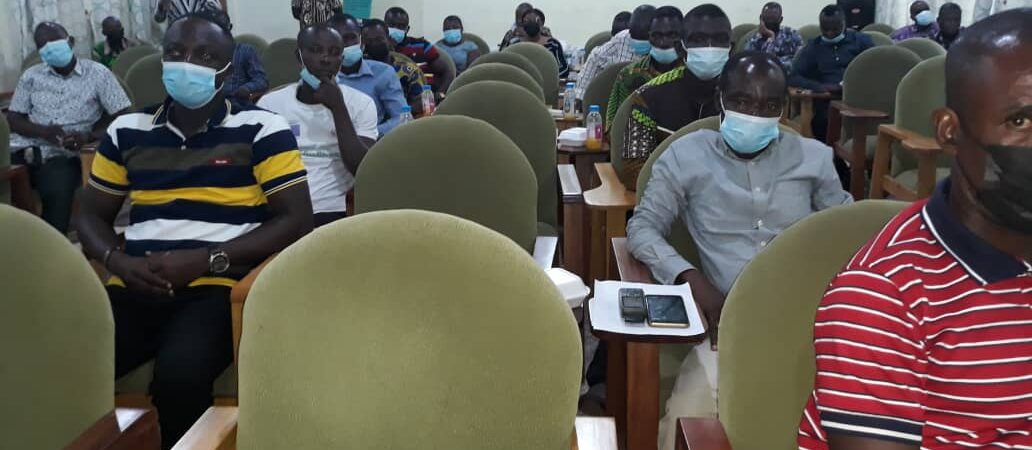
Ghana’s rainforest is rapidly disappearing. In 2018 alone, the country saw an alarming 60% decrease in primary (pristine) forest (Rainforest Trust). This was the highest percentage of rainforest loss of any tropical country. Currently Ghana has one of the highest deforestation rates (2% FAO) aside from Nigeria and Togo in the tropical world. One of the major causes of deforestation is illegal logging. To help control illegalities in the timber sector Ghana and the EU have signed the VPA/FLEGT to control the trade and export of illegal timber to the EU and ultimately in the domestic market. One of the mechanisms of the VPA/FLEGT is the development of independent monitoring mechanisms through the Ghana LAS for effective forest law compliance.
The Ghana VPA/FLEGT enjoins the CSOs and Forest Communities to play important roles in forest monitoring. However, there are no clear policy provisions for civil society and forest communities to play their proper roles as independent monitors. RUDEYA in collaboration with the key stakeholders have developed CS/Community independent monitoring guidelines which enables CS/Community actors to carry out independent monitoring and come out with validated IFM reports to the general public and external buyers.
RUDEYA in 2017/2018 with funding from the FAO piloted and completed CS/Community IFM project that enable previously marginalized forest communities to complement official forest monitoring to improve compliance with the Ghana Legality Assurance System (LAS). CS/Community IFM seeks to improve transparency, accountability and equitable SRAs for community development and poverty reduction in forest communities. It will also provide sustainable community architecture for CS/Community IFM. RUDEYA is currently looking for partners and donors to up-scale this project to cover all the 46 forest districts in Ghana.